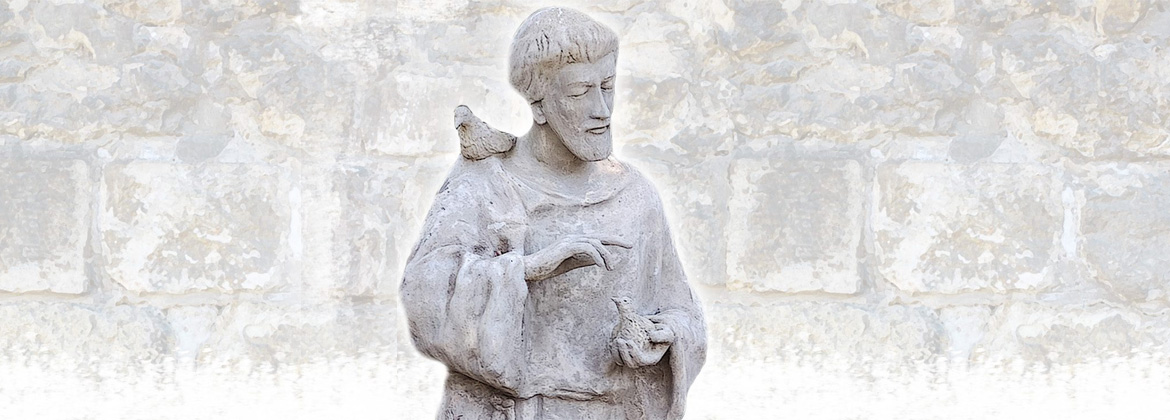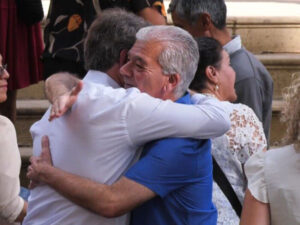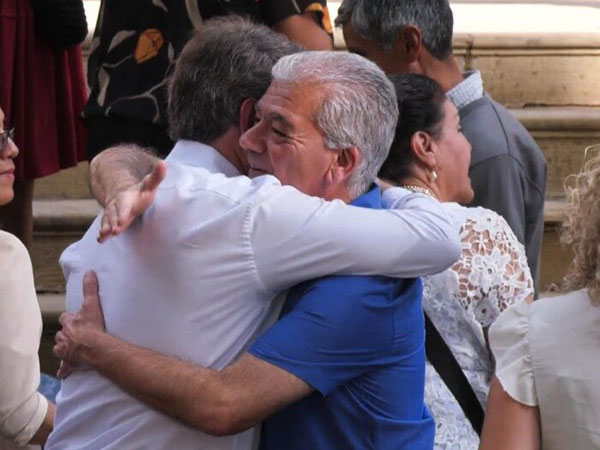A Sun warming friends
A Sun warming friends

“A sun was born into the world.”
It was with these words that Dante Alighieri described the birth of Francis of Assisi, in the Divine Comedy, a piece written in Italian.
And as we turn our eyes to the life of the “Poor Man of Assisi”, from his crawling times until his perishing moments, we will be able to observe that this ‘sun’ brightens the life of many creatures, given the example of righteousness of ideal. A conduct so full in itself that it spills over as an explosion of Love, remaining as a concrete figure of goodness 800 years after his death. A remarkable example in the face of humanity.
And what did the Poverello of Assisi do?
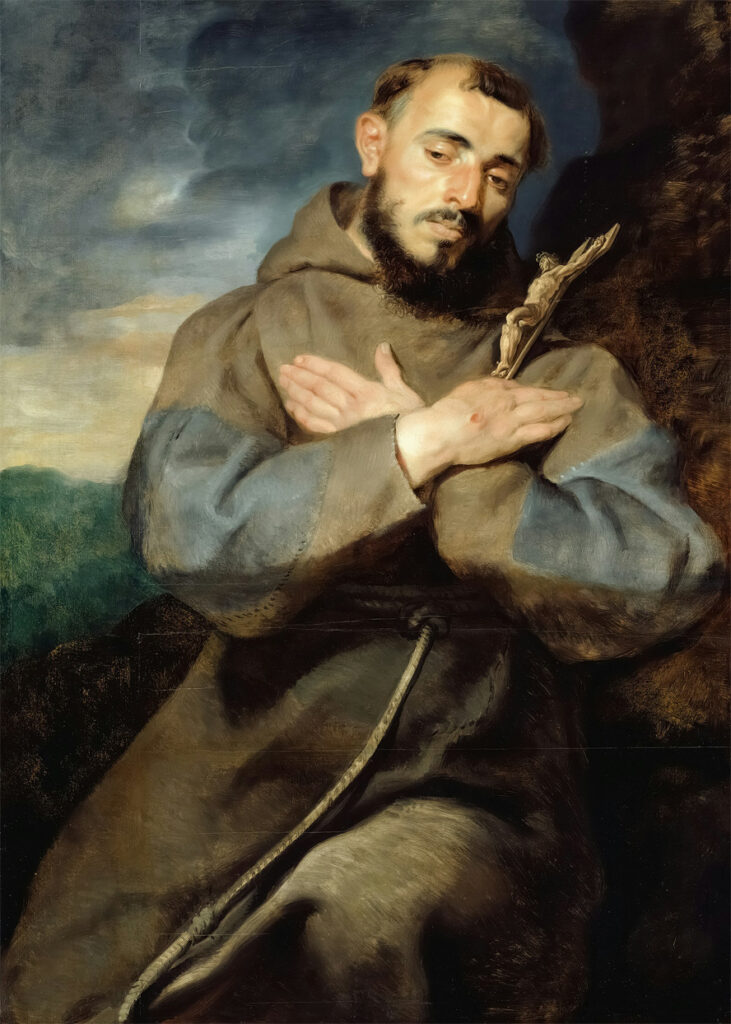
From a rich young man, an ordinary guy for his time and his environment, he went through wars and when imprisoned he began the path of self-discovery. In San Damiano, at the ruined church, he heard his call more clearly and started to work, stone by stone, on what he later discovered was not the real work to be rebuilt.
As a way of life, he set Obedience, Poverty and Chastity – vows tied in three knots on the cord that fastened his garment, marking in front of everyone, what he believed was necessary.
His example of work and joy attracted adherents of altruism, involving those who decided to go hand-in-hand with the idea of living the Gospel in its integrity.
And so, he surrounded himself with brothers, the Friars of the order that arose, the Franciscans.
The gospel should be followed alla lettera, to the letter, no comments, in order not to overlap the clear words of the Father.
For this movement, always having God as a guide, he simply extracted from the Scriptures themselves the three verses that would guide the life and rule of the Order:
“If thou wilt be perfect, go and sell that thou hast, and give to the poor, and thou shalt have treasure in heaven: and come and follow me.”
(Matthew 19:21)
“Carry neither purse, nor scrip, nor shoes.”
(Luke 10:4)
“Whoever wants to be my disciple must deny themselves, take up their cross and follow Me.”
(Matthew 16:24)
And so Sister Poverty was betrothed, kept in total oblivion by society.
He healed the sick, satisfied the thirsty, listened, prayed, fasted and meditated. He tirelessly took care of everything and everyone. He used his mind, mastering parapsychological aspects that led him to transcend prisons of the body, foreseeing Past, Present, Future and the secret desires and thoughts of his friends.
Contemplation integrated him into the grandeur of the Whole. One of the ways that earned him more and more followers, making it difficult to organize and fidelity to the essential principles of the Order, which was growing day by day.
He concentrated on his vows, being seen as spazzino, the garbage man, who cared for the “dirty” body of lepers without, however, ever contracting this evil for his flesh. Would this be another act of faith, miracle or true Harmony?
He celebrated the life of Jesus in all His moments. In praising His birth, he creatively invented the Christmas nativity scene, allowing it to be seen “with the eyes of the flesh” all the sublime contained in Humility.
The temptation he suffered was to love his friends so well that he did not wish to renounce the affection he felt for them. But his conviction showed him that even this attachment should be healed, and he finally stated: “Father, this is also yours.” Perhaps it was this remnant of humanity, the stone that kept him on Earth.
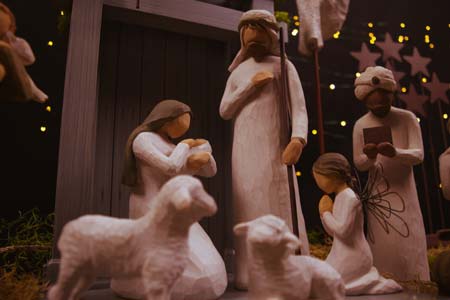
Wherever he entered or left, in everything he wrote, he signed with the TAU.
The TAU is a cross which is the symbol of the Order of Friars Minor, the one that unites on the horizontal the Earthly aspects and on the vertical, the transcendental, both living in perfect balance given the equal importance in the way of overcoming oneself.
To overcome oneself was a work in which Francis of Assisi committed himself in every act, aiming to follow a direct route towards the Light.
When his body was weak, he proceeded to the fate of his death carried on a stretcher. On the way he could see Assisi, his homeland, blessing it amid the sign of the cross: “To those who are and to those who will come”.
At his own request, on his deathbed he was naked, lying in the cold, on the floor of the Porziuncola, covered with a robe borrowed from a friar friend.
He died in the afternoon of October 3, 1226, singing praises, among them the “Song of Brother Sun”, inviting everyone to this sublime moment of contemplation. Invitation extended to death itself, which was welcomed as a sister, as he thanked her for opening the “door of life”.
In the smallest detail he was enveloped in Love. In the transfer to the grave he was able to face Clara, saying goodbye to his childhood friend, the accomplice of everything to which they said “Amen!”.
And the same Dante Alighieri seals the life of this apostle who was present on Earth 1100 years after Christ, spreading the idea that he who does not disperse is nourished by goodness. Righteousness of action that Francis triggered with all his heart.
